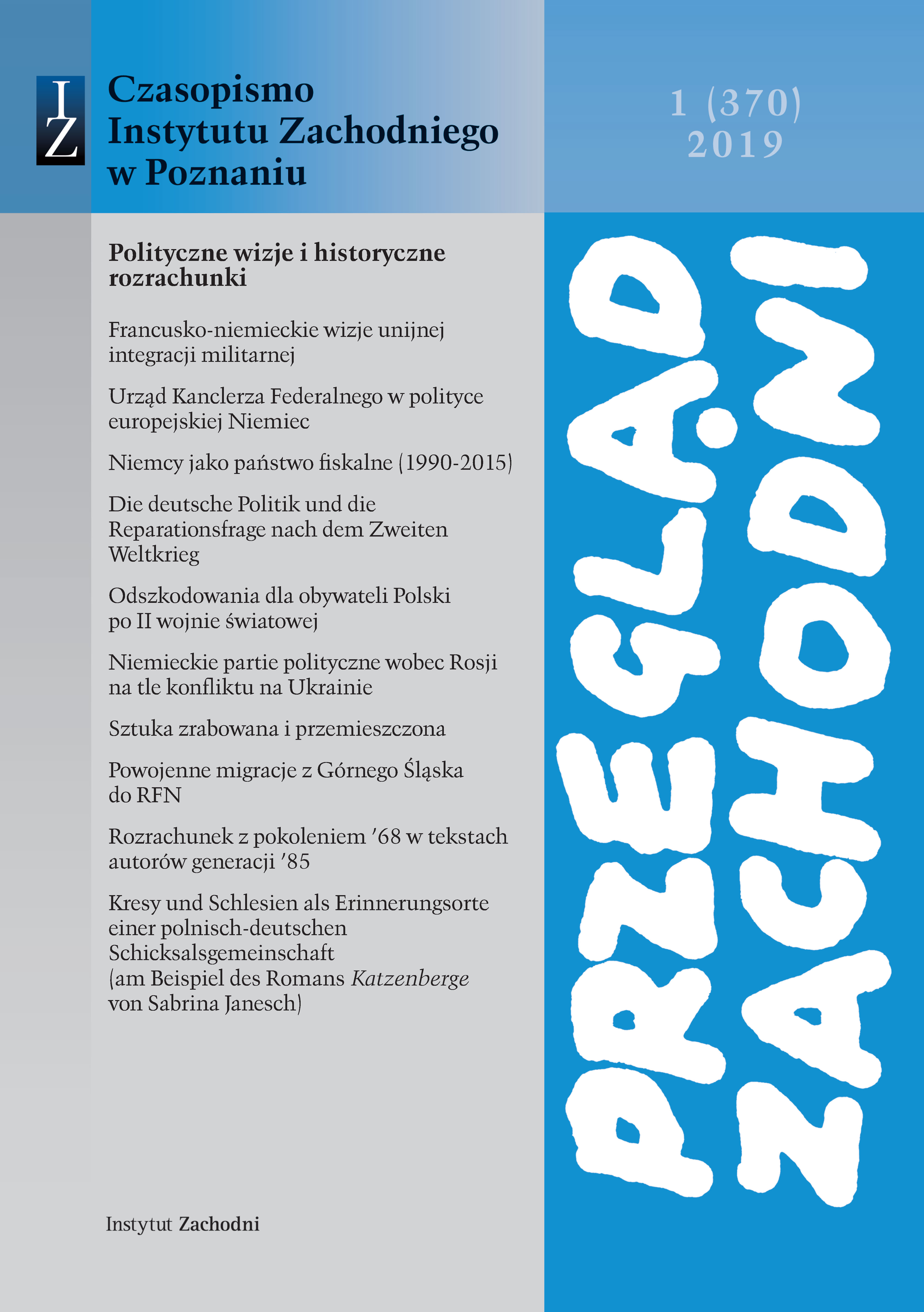Rozrachunek z pokoleniem ’68 w tekstach autorów generacji ’85
Settling scores with the generation of '68 in the texts of authors of the generation of '85
Author(s): Michał StefańskiSubject(s): Sociology of Culture
Published by: Instytut Zachodni im. Zygmunta Wojciechowskiego
Keywords: 1968; generation of ‘68; generation of ‘85; generational conflict; Federal Republic of Germany; generational identity
Summary/Abstract: The objective of the paper is analysis of the phenomenon of settling scores with the West German generation of ‘68 based on selected literary, (auto)biographical and essayistic texts of the authors belonging to the generation of their children, so called generation of ‘85. The article also aims to examine the process of building generational identity. The main fields of settling scores are: new concepts of family, anti-authoritarian education, sexual revolution, ideology, the past and politics. Apart from mostly negative there are also some ambiguous and ambivalent evaluations in which the generation of ‘68 is not only criticized, but also admired and envied. Text analysis shows the multidimensionality of the problem of settling scores with the generation of ‘68 and leads to the conclusion that through confrontation with the generation of their parents, the authors of the generation of ‘85 try to determine their own value system and to create their own generational identity. With its strong identity, the generation of ‘68 is a contrast plane for the generation of ‘85 that allows their self-definition. The research perspective presented in this paper refers to the field of generational research (Generationenforschung) and is based on the methods of close reading, which focuses on the immanent text analysis and wide reading, which is oriented towards analysis of the historical and cultural aspects represented in the texts.
Journal: Przegląd Zachodni
- Issue Year: 370/2019
- Issue No: 01
- Page Range: 163-179
- Page Count: 17
- Language: English, Polish

